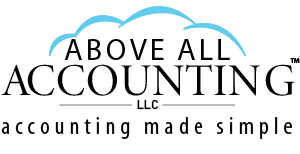Fiscal Insight Hub
Welcome to the Fiscal Insight Hub! Our space where we’re all about helping businesses succeed! Hiring the right bookkeeper can be a game-changer, and we’re excited to share some insights with you. So grab a cup of coffee, activate stealth mode for a quick break, and let’s dive into the world of hiring the perfect match for your business.
~~~~~~~~~
Hiring the Right Bookkeeper: A Comprehensive Guide
Navigating the hiring process for a bookkeeper is crucial for small business owners. To ensure you don’t find yourself in a less-than-ideal situation, follow these guidelines for a smoother hiring experience.
Spacing Out Interviews for Better Insight
Organizing interviews strategically, with intervals between them, allows for a thorough understanding of each applicant. This approach provides the opportunity to delve into their past experiences, technical expertise, and familiarity with your accounting software.
General Questions to Elicit Valuable Information
1. “Tell me about yourself.”
This open-ended question encourages candidates to share not only professional experiences but also insights into their work approach and personal background. It serves as a window into their character and how they might contribute to your team’s dynamic.
2. “Why did you apply for this bookkeeping position?”
Before delving into specific questions about a candidate’s work experience, it’s crucial to establish more than just the surface they are presenting. Ensuring they’re not merely seeking temporary employment is essential; you also want to gauge their honesty.
Visualize this real-world scenario: A bookkeeper ingeniously blended personal expenses with company accounts, slipping under the radar for an astounding two years! This not only highlights the significance of astute observation but also emphasizes the necessity to decipher underlying intentions.
3. “Why did you choose this career?”
Seek candidates passionate about bookkeeping and committed to ongoing professional development. Their response can offer a glimpse into their intrinsic motivation for pursuing a career in this field.
4. “Why are you interested in leaving your current job?”
Look for candidates seeking new challenges, steering clear of those discontent with their current role. Gaining insight into their driving factors helps in assessing their compatibility with the potential challenges your company may offer.
5. “What are your career goals? How do you plan to achieve them? What do you see yourself doing five/ten years from now?”
Identify self-motivated candidates with a clear vision for career progression. Their aspirations can reveal dedication and drive, essential qualities for a bookkeeping role.
Specific Work Experience Questions
1. “What types of financial reports have you prepared?”
Candidates should demonstrate proficiency in essential reports, including aged payables, aged receivables, cash flow statements, P&L, and Balance Sheets. This reflects their technical competency, a crucial factor in effective bookkeeping.
2. “Which accounting software programs are you familiar with?”
Ensure candidates are well-versed in the software you use, such as Quickbooks, Xero, or Sage. Proficiency in the tools you employ is essential for seamless integration into your workflow.
3. “How would you describe your work style?”
Assess their work style for alignment with your team’s dynamics. Their response provides insight into how they collaborate and contribute to a cohesive work environment.
4. “What did you like most/least about your last job?” “What were the responsibilities of your last position?” “What do you think of your previous boss?”
Gain insights into past experiences and potential red flags. Understanding their perspectives on previous roles and superiors offers valuable context.
5. “What are three positive things your last boss would say about you?”
Seek specific qualities that align with your job description. This question encourages candidates to reflect on their strengths and provides you with a clearer picture of their professional attributes.
6. “What’s one negative thing your last boss would say about you?”
Look for self-awareness and a commitment to improvement. Acknowledging areas for growth demonstrates a willingness to learn and evolve professionally.
7. “Give examples of ideas you’ve had or implemented.”
Assess problem-solving skills through real-life scenarios. Candidates should articulate their ability to identify challenges, propose solutions, and detail the resulting positive outcomes.
Unveiling the world of bookkeeping software, such as Quickbooks, reveals a critical truth – its effectiveness relies on accurate data entry. Many, in a bid to cut costs, opt for secretarial bookkeeping, unaware of the expertise required. An expert accountant plays an important role, ensuring not only the correctness of data entry but also putting together the Profit and Loss (P&L) and Balance Sheet for precise tax filings.
Consider this real-life scenario: A client’s journey highlights the critical need for meticulous oversight. A slip-up in reviewing records by a former accountant resulted in a costly mistake. The bookkeeper, inadvertently classifying investments as income, inflated tax obligations. This cautionary tale underscores a fundamental truth: selecting the right team member is pivotal for financial stability.
Technical Questions to Gauge Proficiency
Evaluate their technical skills in the crucial aspects of bookkeeping. These questions delve into their hands-on experience with essential tools.
- “How would you describe your competency in using Excel and its role in your approach to bookkeeping tasks?”
- “How do you customize a report in QuickBooks?”
- “Tell me when you would post an adjusting entry.”
- “Does the accounts payable account normally have a debit or credit balance?”
- “How would you know if someone accidentally posted an adjusting journal entry to accounts receivable?”
- “When do we have to send vendors 1099s?”
- “What is depreciation expense?”
Understanding both the personal and technical aspects of potential bookkeepers ensures a well-rounded assessment, aiding in informed decisions for building the right team. Choose candidates whose responses align not only with your technical requirements but also with the collaborative and forward-thinking culture of your company.
That’s it for now, folks! We hope we’ve given you the tools you need to effectively hire a skilled bookkeeper who will help your business thrive.







 305-600-0717
305-600-0717
